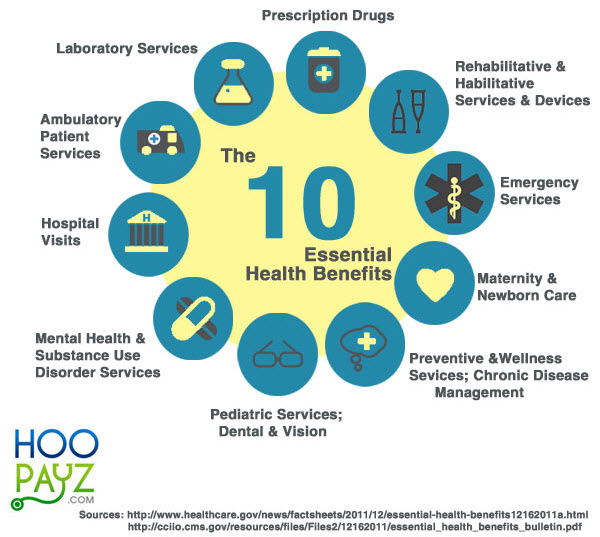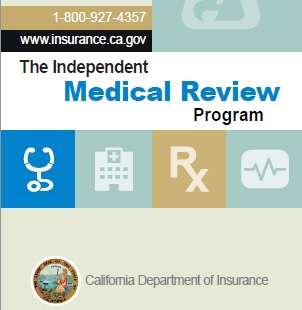What does “medically necessary”, “medical necessity” & IMR mean?
Try turning your phone sideways to see the graphs & pdf's?
Medical Necessity
A service is “medically necessary” or a “medical necessity” when it is reasonable and necessary to protect life, to prevent significant illness or significant disability, or to alleviate severe pain. (2014 ACA Sample EOC Page 166) * CIGNA’s Definition * CA WIC §14059.5
Medically Necessary shall mean health care services that a Physician, exercising professional clinical judgment, would provide to a patient for the purpose of preventing, evaluating, diagnosing or treating an illness, injury, disease or its symptoms, and that are:
In accordance with generally accepted standards of medical practice, Illinois Dept of Insurance Definition
The Five Dimensions of the Medical Necessity Definition
- The contractual scope of coverage: whether proposed treatment is explicitly included or excluded in the health plan contract
- Whether the proposed treatment is consistent with professional standards of practice
- Patient safety and setting of the treatment
- Whether the treatment is medical in nature or for the convenience of the health professional or patient and family
- Treatment cost samhsa.gov
most definitions incorporate the principle of providing services which are “reasonable and necessary” or “appropriate” in light of clinical standards of practice
Medicare defines “medical necessity” as services or items reasonable and necessary for the diagnosis or treatment of illness or injury or to improve the functioning of a malformed body member. Glossary Meeicare.Gov
Resources & Links
Excerpt from Insurance Policy – EOC Evidence of Coverage
- The Benefits of this Plan are provided only for Services which are Medically Necessary as defined in this section.
- Services which are Medically Necessary include only those which have been established as safe and effective, are furnished under generally accepted professional standards to treat illness, injury or medical condition, and which are:
- Consistent with the Plan’s medical policy;
- Consistent with the symptoms or diagnosis;
- Not furnished primarily for the convenience of the patient, the attending Physician or other provider; and
- Furnished at the most appropriate level which can be provided safely and effectively to the patient.
- If there are two (2) or more Medically Necessary Services that may be provided for the illness, injury, or medical condition, Blue Shield Life will provide benefits based on the most cost-effective Service.
- Hospital Inpatient Services which are Medically Necessary include only those Services which satisfy the above requirements, require the acute bed-patient (overnight) setting, and which could not have been provided in the Physician’s office, the Outpatient department of a Hospital, or in another lesser facility without adversely affecting the patient’s condition or the quality of medical care rendered. Inpatient services not Medically Necessary include hospitalization:
- For diagnostic studies that could have been provided on an Outpatient basis;
- For medical observation or evaluation;
- For personal comfort;
- In a pain management center to treat or cure chronic pain; and
- For Inpatient Rehabilitation that can be provided on an Outpatient basis. Copied from Blue Shield EOC
All our Health plans are Guaranteed Issue with No Pre X Clause
Instant Quote & Subsidy #Calculation
There is No charge for our complementary services, we are paid by the Insurance Company.
- Our Quote Engine Takes all the complexity out of using pencil and paper to figure out the premiums per the Obamacare/ACA rules under CFR §1.36B-3 *
- We are authorized Brokers for Dental, Vision & Covered CA get instant quotes direct and in Covered CA with subsidy calculation for:
- Watch our 10 minute VIDEO that explains everything about getting a quote
Prior Authorization
Prior #Authorization
- Preauthorization is A decision by your health insurer or plan that a health care service, treatment plan, prescription drug or durable medical equipment (DME) is medically necessary. Sometimes called prior authorization, prior approval or precertification.
- Your health insurance or plan may require preauthorization for certain services before you receive them, except in an emergency. Preauthorization isn’t a promise your health insurance or plan will cover the cost. Health Net Glossary * See also YOUR EOC, Evidence of Coverage!
- IMHO Insurance Companies are not doctors and a lot of people and regulators agree, thus the pending laws and investigations.
- Exhausted by prior authorization, many patients abandon care: AMA survey
- Prior Authorization in Medicare Advantage Plans: How Often Is It Used? KFF 10/2018
- Prior Authorization - Regulatory Investigation aka “preauthorization” and “precertification” KFF.org 5.20.2022
- California Senate Bill 250 * Senator Pan would require that insurers consult with doctors on which services require authorizations, streamline the process, less paperwork and allow patients to get the care they need faster.
- SB 250 would require health plans to exempt physicians from prior authorization rules if they have practiced within the plan's criteria 80% of the time. CMA.Docs.org
- PRIOR AUTHORIZATION REQUIREMENTS HALTED FOR CERTAIN SERVICES
- Parody If Health Care was honest VIDEO
- UnitedHealth launches ‘gold card' to ease prior authorization burden
- Use of Prior Authorization Up in Medicare Advantage Plans, Senate Report Finds
- ajmc.com/prior-authorizations-and-the-adverse-impact-on-continuity-of-care
- See our main webpage on Medical Necessity
Resources, Links & Bibliography
- cal matters.org/new-bill-pushes-insurers-to-stop-playing-doctor
- Payer Denial Tactics — How to Confront a $20 Billion Problem
- cal matters.org/richard-pan
- cma docs.org/prior-authorization-bill
- Plaintiff whose insurer delayed surgery is awarded $14 million over opioid dependency
- SCAN Pharmacy Prior Authorization Forms SCAN Website
- General Prior Authorization SCAN Website
- Her spine surgery was denied. Doctors say it's all too common.
Insurance denied 18-year-old Nala White’s surgery for degenerative disc disease. After NBC News reached out, it was approved the next day. NBC News.com
Misc. Links & News
- Her spine surgery was denied. Doctors say it’s all too common.
Insurance denied 18-year-old Nala White’s surgery for degenerative disc disease. After NBC News reached out, it was approved the next day. NBC 8/2025 - Democrats introduce bill to repeal Medicare prior authorization pilot
The lawmakers argue the CMS innovation center model, which will implement AI-backed prior authorization for some services in six states, will add red tape and limit access to care. Health Care Dive 10.2025 *
Clinical Guidelines
Oscar #Clinical Guidelines
Appear to be in Plain English!
- Noninvasive Positive Pressure Ventilation (CG003) English PDF
- Oxygen Therapy (CG005) English PDF
- Hospital Beds and Accessories (CG006) English PDF
- Pressure-Reducing Support Surfaces (CG007) English PDF
- Bariatric Surgery (Adults) (CG008) English PDF
- Bariatric Surgery (Adolescents) (CG009) English PDF
- Medicare.gov on Bariatric Surgery Costs
- Medical Nutrition Therapy (CG010) English PDF
- Oral Liquid Nutritional Supplements (CG011) English PDF
- Non-Covered #Experimental, Investigational, and Unproven Services (CG012) English PDF
- Acupuncture (CG013) English PDF
- Hyperbaric Oxygen Therapy (CG014) English PDF
- Treatment and Removal of Benign Skin Lesions (CG015) English PDF
- Sex Reassignment Surgery (Gender Affirmation Surgery) (CG017) English PDF
- The Longest Mile: Gender Affirming Surgery and Health Insurance Insure Me Kevin.com
- Balloon Ostial Dilation (CG018)
- Wearable Cardioverter-Defibrillator Devices (CG019)
- Home Care – Skilled Nursing Care (RN, LVN/LPN) (CG020) English PDF
- Home Care – Physical Therapy (PT) and Occupational Therapy (OT) (CG021) English PDF
- Home Care – Home Health Aides (HHA) (CG022) English PDF
- Home Care – Speech Language Pathology (SLP) Services (CG023) English PDF
- Colorectal Cancer Screening (CG024) English PDF
- Optical Coherence Tomography (OCT) (CG025) English PDF
- Autonomic Testing (CG026) English PDF
- Breast Imaging (CG027) English PDF
- Diabetes Equipment and Supplies (CG028) English PDF
- Insulin Delivery Systems and Continuous Glucose Monitoring (CG029) English PDF
- Bioengineered Skin and Soft Tissue Substitutes (CG030) English PDF
- BPH Treatment (CG031) English PDF
- Ambulatory Cardiac Event Monitoring (CG032) English PDF
- Botulinum Toxin (CG033) English PDF
- Glaucoma Surgery (CG034) English PDF
- Transcranial Doppler (CG035) English PDF
- Breast Procedures (CG036) English PDF
- Erectile Dysfunction (CG037) English PDF
- Home Births (CG038) English PDF
- Contact Lenses and Eyeglasses (CG039) English PDF
- Potentially Preventable Hospital Readmissions (CG040) English PDF
- Anesthesia and Sedation in Endoscopy (CG041) English PDF
- Skilled Nursing Facility Care (CG042) English PDF
- Prenatal Testing (CG043) English PDF
- Outpatient Physical Therapy & Occupational Therapy (CG044) English PDF
Medical Policies & Clinical UM Guidelines
- Like Lap Band Aetna Bulletin on Obesity Surgery (Gastric Bypass) (Lap Band)
- Cochlear Implants – Hearing
- Blue Cross Anthem Elevance
- Welcome to the Clinical Criteria Page Rx
- Anthem Policies, Guidelines & Manuals Anthem.com
- Blue Shield Clinical Policies
- UnitedHealthcare Small Employer Group
- Formularies and pharmacy clinical policy bulletins Aetna
- Ozempic ® (semaglutide)
- remote patient monitoring (RPM) is only medically necessary in two instances:
- to treat chronic heart failure and hypertension during pregnancy.
- It explicitly says the use of RPM for Type 2 diabetes and hypertension – two of the most popular uses of RPM – will no longer be covered. Fierce Health Care.com
How do I find a code.com ICD 9, 10, DRG, CPT, (Current Procedural Terminology) diagnosis code, Medical Billing, coding
- Magellan – Mental Health — Medical Necessity Guidelines for providers
- Care Guidelines Levels of Care – Service Definitions – Term Definitions
- Provider Handbook
- See our webpage on finding a Magellan Therapist – Shrink – Psychiatrist
- See our webpage on Mental Health
Utilization Review
The Criteria (Clinical UM – Utilization Management)
for establishing the medical necessity of a service:
The service is appropriate for symptoms, diagnosis, and treatment of a condition, illness, or injury; provided for diagnosis, direct care, or treatment; in accordance with the standards of good medical practice; not primarily for the convenience of the member or member’s provider; the most appropriate supply or level of service that can be safely provided to the member. samhsa.gov/
Clinically appropriate, in terms of type, frequency, extent, site and duration, and considered effective for the patient’s illness, injury or disease, and Not primarily for the convenience of the patient, Physician or other health care provider, and not more costly than an alternative service or sequence of services at least as likely to produce equivalent therapeutic or diagnostic results as to the diagnosis or treatment of that patient’s illness, injury or disease.
For these purposes, generally accepted standards of medical practice means standards that are based on credible scientific evidence published in peer-reviewed medical literature generally recognized by the relevant medical community, Physician specialty society recommendations and the views of Physicians practicing in relevant clinical areas and any other relevant factors. Blue Cross ppo_30_eoc Page 108
Visit our HSA page for Federal Definition of Medical Expenses
IMR Independent Medical Review
Independent Medical #Review (IMR) Program
VIDEO's
DMHC Help Center & Independent Medical Review VIDEO
An Independent Medical Review (IMR) is where expert independent medical professionals review specific medical decisions made by the insurance company. The California Department of Insurance (CDI) administers an Independent Medical Review program that enables you, the insured, to request an impartial appraisal of medical decisions within certain guidelines as specified by the law.
Health insurer delayed her MRI. Meanwhile, the cancer that would kill her was growing.
An IMR can be requested only if the insurance company’s decision involves:
- The medical necessity of a treatment,
- An experimental or investigational therapy for certain medical conditions, or
- A claims denial for emergency or urgent medical services.
It is important to note that the IMR process cannot be used for an insurance company decision that is based on a coverage issue. Only decisions regarding a disputed health care service, as it relates to the practice of medicine, that do not involve a coverage issue are qualified for the IMR program.
You are required to exhaust the internal appeals/grievance process of your particular insurance company before applying for an IMR with the CDI. Click here to read full article on Department of Insurance Website
- IMR on CA Department of Insurance Website
- What Is an Independent Medical Review?
- Who Can Request an Independent Medical Review?
- When Can an Independent Medical Review Be Requested?
- What Issues Are Eligible for an Independent Medical Review?
- What Issues Are Not Eligible for an Independent Medical Review?
- How Does the Independent Medical Review Program Work?
- What Are the Criteria Used in an Independent Medical Review Determination?
- Is There a Way to Process an Independent Medical Review More Quickly in Extraordinary Circumstances?
- Will an Independent Medical Review be Costly?
- Does Independent Medical Review Participation Prevent Future Legal Action?
- Are Medical Records Kept Confidential in the Independent Medical Review Process?
- How Do I Request an Independent Medical Review from the California Department of Insurance?
- Health Insurance Terms and Phrases
- The California Department of Managed Health Care (DMHC) The DMHC regulates HMOs and some PPOs in California – Try using the Insurance Company procedure first
- Complaint Form & IMR
- 1-888-HMO-2219
- [email protected]
- CA Department of Insurance
- IMR – Independent Medical Review
- ONLINE complaint form insurance.ca.gov/complain
- Magellan Mental Health
- Policy Statement
- Magellan* provides procedures for the expeditious processing of requests for external appeal of adverse determinations through an Independent Review Organization as required by applicable law or customer contract.
- Purpose
- To establish standards to assure independent and timely review of disputed health care services to assure that appropriate, beneficial treatment interventions are made available to members. Magellan Mental Health
- National Health Law Program 12 page pdf on Internal Grievances & External Review in Service Denials in Covered CA Plans
- Sections 10169 through 10169.5 of the California Insurance Code (CIC), which became effective January 1, 2001, explain the IMR process in detail. In addition, Section 10145.3 explains the IMR process as it relates to experimental or investigational therapies.
Our Web Pages on
- Medical Necessity – reasonable and necessary Independent Medical Review
- Appeal & Grievances? Medicare – Medi Cal – Covered CA
FAQ’s “Independent Medical Review”
- latimes.com/investigation-delays-los-angeles-hospitals-patients-deaths
- Knox Keene violations
- Evidence of Coverage
- California Children’s Services Whole Child Model dhcs.ca.gov/CCS Whole Child Model
- Evidence of Coverage
- Pediatric Acute-onset Neuropsychiatric Syndrome (PANS) is a clinical diagnosis given to children who have a dramatic – sometimes overnight – onset of neuropsychiatric symptoms including obsessions/compulsions or food restriction. They are often diagnosed with obsessive-compulsive disorder (OCD) or an eating disorder, but the sudden onset of symptoms separates PANS from these other disorders. In addition, they may have symptoms of depression, irritability, anxiety, and have difficulty with schoolwork. The cause of PANS is unknown in most cases but is thought to be triggered by infections, metabolic disturbances, and other inflammatory reactions. med.stanford.edu/pans
- Air Ambulance?
Visit our webpage on Knee & Hip Replacement



https://www.chiefhealthcareexecutive.com/view/insurers-must-approve-care-more-quickly-but-providers-aren-t-overly-optimistic
https://www.beckerspayer.com/policy-updates/state-laws-now-in-effect-push-insurers-for-quicker-prior-authorization-responses/
https://www.forbes.com/sites/brucejapsen/2026/01/01/in-2026-health-insurers-to-push-simplicity-and-speed-of-approvals/
https://www.hipaajournal.com/what-is-hipaa-authorization/
Quite interesting article!